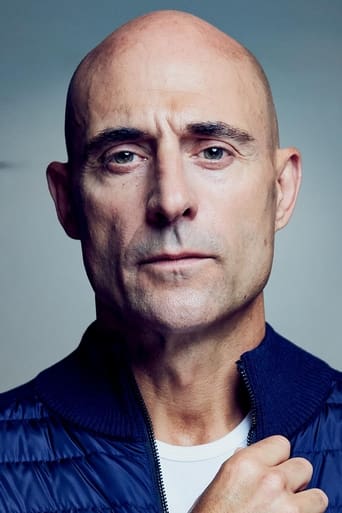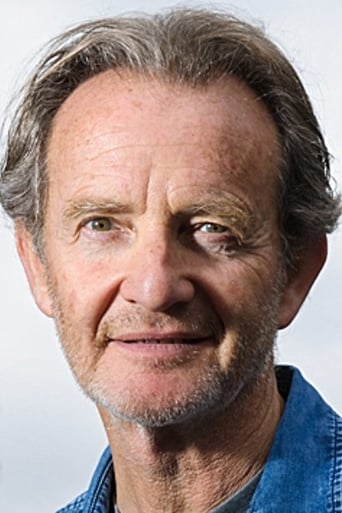Dotsthavesp
I wanted to but couldn't!
Stoutor
It's not great by any means, but it's a pretty good movie that didn't leave me filled with regret for investing time in it.
InformationRap
This is one of the few movies I've ever seen where the whole audience broke into spontaneous, loud applause a third of the way in.
Calum Hutton
It's a good bad... and worth a popcorn matinée. While it's easy to lament what could have been...
Larry Silverstein
Set in 1959 and '60, in Bucharest, Romania. and based on a true story, this film focuses on the plight of the group that was to become known as the Rosenthal Gang. The group led by Max Radoiu Rosenthal (Mark Strong) were all once daring Jewish Resistance fighters vs. the Nazis during WWII, in Romania. They were all Communists as well, and when the Soviet Union seized complete control over Eastern Europe after the war, many of these Resistance fighters held elite positions in Romania.However now over a decade later, many of the fighters are being blacklisted and purged from the country's hierarchy. As the film opens, the so-called Rosenthal gang is staging a daring daylight robbery of a bank transport van carrying loads of cash. They're using the pretense of making a movie as the heist progresses, in the middle of Martyrs' Square in Bucharest. Of course, this type of crime is unheard of in a Communist country.Flash forward a year, and we find the group has all been captured, tried, and sentenced to death by a firing squad for their crimes. However, before their executions can take place, the government wants to recreate their story in a propaganda film, that will serve as a lesson for the Romanian people.The movie, written and directed by Romanian filmmaker Nae Caranfil, is presented in a most irreverent and satirical way, which unfortunately only at times came across as entertaining to me. Towards the end of the film, as we finally learn the motivations of the "gang", it made little sense to me considering the dire consequences of what their actions could bring.Overall, I know this movie is presented in a most satirical way, but it had me "scratching my head" half of the time, specifically as to the path the main characters chose to take here.
andreeeei
In reality, something happened. Some people have been executed without being guilty. They have been forced to play a role in their fake trials and all ended in their execution. A false history was created by some top authorities in order to teach some kind of a lesson to the people that worked in the communist regime structures. This movie was not made for the public. This false reenactment most probably inspired Lucian Pintilie to create a cinematographic masterpiece, Reconstruction (1968). Add to that the fact that Pintilie's film has been done in those crazy times, when you could have gotten into big trouble for criticizing the regime.Now, here comes Caranfil, a great director, that takes the original story and twists it once again, turning these people into courageous heroes that opposed the regime. They get into a suicidal mission just to send a message. How much believable is that? Does this bring justice to the original six persecuted people? I'm not sure about that. There's a documentary, called Marele Jaf Comunist (The Great Communist Robbery) that reveals more of the true story. Anyway, a drama is not supposed to tell the real story, and that's OK, but in this case, it's a pity that some people will take it as history. The real six people have been persecuted in communist style with fake trials and five of them were killed. They were Jews and they were high professionals. Moreover, ironically, they had a history in participating successfully in bringing the communism to Romania. So, why did the regime chose them in order to teach a lesson to the other communists, and probably to the Jewish communists? The movie might leave you with the impression that all Jews were persecuted under the communism. Many of them they were. The Russian occupation brought suffering to all kinds of Romanian citizens. But many of the Jews supported the regime since the beginning.I know that many of the Jews have been disappointed by the communism that they previously believed in. Most of the Jews went to Israel sometimes in the Sixties, but also, many Jews supported the communist repression, leading to massive deportation, imprisonment and execution of hundreds of thousands of Romanian citizens. You will not see this in the movie.
zif ofoz
It is always gratifying to find a film you do not know anything about and it becomes one of your favorite movies.Director/writer Nae Caranfil has taken an obscure incident in Soviet occupied Romania in the late 1950's and has offered it up to the 21st century cinema to give us a most pertinent message for today's world.That message is not robbing the bank! The message is to be found in how the system (society) can single out certain groups and marginalize them into committing a desperate act --- and not really have any reason to do this act but to just fight back.The entire cast is perfect in their individual roles, the script is intelligent, the photography beautiful! This film should a 10 in anyones book!
Daniel S
Excellent movie. A quintet of Jews seeing their status drop in postwar Romania rob a bank in Nae Caranfil's Closer to the Moon, only to be caught, convicted, and forced to reenact their crime in a slyly anti- Semitic propaganda film. Though based on a true story, the film discards some of its claim to authenticity right off the bat, casting Brits and Americans in all the leads and having them speak English instead of Romanian; later, it will have trouble establishing the gang's motives for a crime they all but knew would lead to their execution. Stateside potential is modest for the semi-convincing yet enjoyable tale, relying on familiar names in a cast that acquits itself well given the demands of the unusual plot. The dialogue may not sell viewers on the motivations for a robbery where the loot was a nearly worthless currency, but the setting offers a melancholy that would be welcome elsewhere in the film.





